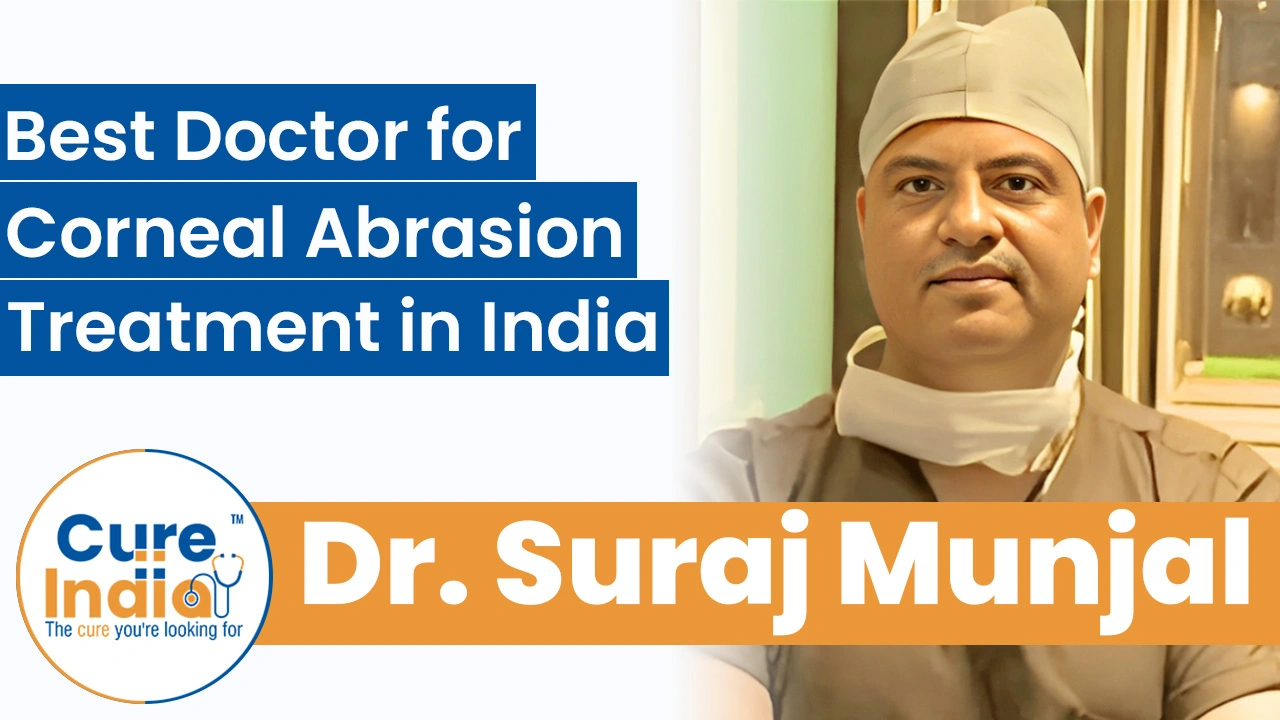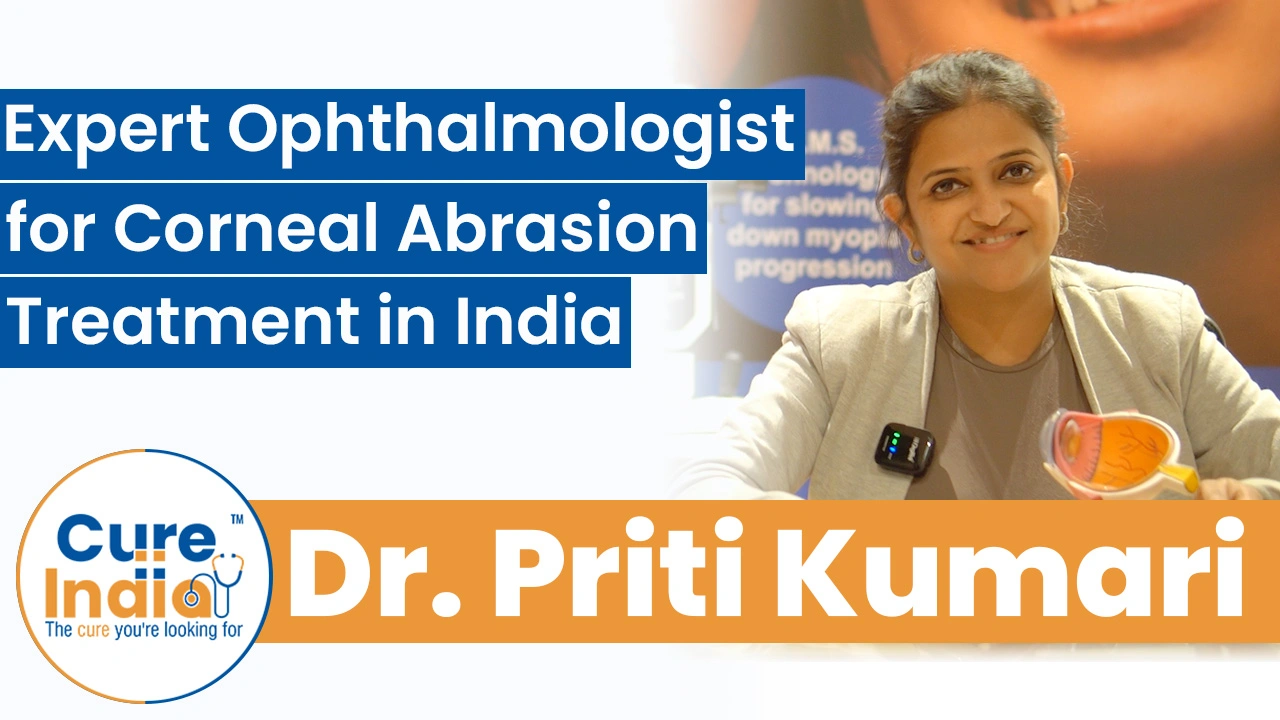

In Africa, corneal abrasion is quite common and often results from heavy exposure to harsh environmental conditions. Most Africans have limited access to corneal abrasion treatment, with high rates of untreated eye conditions, and limited health care facilities. Thus, it increases the risk of persistent infection and eye injuries in Africa.
Corneal surgeries are the surgical procedures that are used to treat problems in the cornea, such as Keratoconus, Fuchs dystrophy, thinning or tearing of the cornea, abrasion in the cornea, etc. Corneas are the transparent coverings of the eyes that cover the iris and pupil and protect them while allowing light to enter the eyes. Various cornea surgery types, such as keratoconus surgery, Pterygium surgery, Corneal collagen crosslinking, keraring surgery, Cornea transplant, etc. available in India, can help treat corneal problems. Depending on the patient’s cornea problem, the doctor will choose the best treatment.
India has achieved marvellous growth in the healthcare sector in every field of treatment in the last two decades. India is one of the prominent tourist destinations for corneal surgeries, as Indian eye hospitals provide high-quality treatments at just a fraction of the cost in many Western countries. The combination of modern healthcare facilities and highly skilled ophthalmologists has made India the best country for various eye treatments.
Corneal treatments are widely available in high-income countries, but low- and middle-income countries are still struggling to provide timely and quality treatment with high success rates. Hence, the people of these countries often travel to India for the treatments. For instance, a lot of people from African countries like Ethiopia, Cameroon, Kenya, and Uganda visit India every year for corneal disease treatment, as the treatment is highly affordable to them and they can receive the best treatment at a lower cost.

The cornea is the crystalline layer that covers the iris, the colourful portion of the eye. Additionally, it protects the black circle in the centre of your eye, known as the pupil. Damage to the eye's cornea is medically referred to as a corneal abrasion or injury. It may occur in a split second when some substance, such as grit or sand, becomes lodged behind your eyelid or you accidentally puncture your eye. It hurts and stings when exposed to light.
Most transplants can be performed while you are awake, but in certain circumstances, you will be sedated. Local anesthesia will be injected around your eye as a pain reliever to keep your eyes from moving during surgery. The cornea you'll get for a keratoplasty or cornea transplant procedure will be donated by a recently deceased individual. A local eye bank will prepare the cornea for your procedure by thoroughly inspecting and testing it.
Your cornea will probably be scratched by any item that comes into close contact with the front of your eyes. Let's have a look at some other circumstances that might lead to corneal abrasion:
Because the cornea is one of the delicate components, even the smallest scrape may cause excruciating pain and great unease. The following are some of the indications and symptoms of a corneal abrasion:

Your eye will be treated depending on the findings of the exam that your ophthalmologist performs on it. The following are some available choices for corneal collagen crosslinking.
When something scratches their eye, most individuals are aware of it very immediately. If there is pain in the eye, it may result from a corneal abrasion. Even a little scratch or cut to the cornea can cause great discomfort. It is possible to self-inflict a corneal abrasion and not even be aware of it. This can occur if you attempt to remove a contact lens from your eye while the lens is not really on your vision. A superficial scratch on the cornea may be caused by accidentally rubbing a finger over it. It is critical to get any damage to the cornea checked up by your eye doctor if any of the following apply:
CureIndia helps connect you with the leading ophthalmologists in India for corneal abrasion treatment. The specialists associated with CureIndia are experienced, skilled, and highly proficient in diagnosing and treating corneal injuries. They use the latest techniques and technologies for the best possible treatment and recovery for their patients. Let us hear from the top-rated doctors for corneal abrasion treatment in India:
Dr. Suraj Munjal is one of the best doctors for corneal abrasion treatment in India, known for his proficiency in handling corneal injuries, surface defects, and trauma-related eye conditions. With an ophthalmology background spanning over 20 years, he provides accurate diagnoses and effective treatment plans for smooth healing and long-term vision protection.

Dr. Suwarn Chetan is a leading cornea and anterior segment expert in India with over 16 years of experience in treating corneal abrasions, infections, and epithelial disorders. He is recognised for his careful evaluations and patient-friendly eye-related corneal treatments, which result in fast recovery and minimal discomfort.

Dr. Neeraj Sanduja is a well-established cornea specialist and ophthalmic surgeon with around 24 years of experience in managing corneal surface damage, trauma-related abrasions, and ocular inflammation. Known for his meticulous treatment strategies and focus on visual restoration, he has earned a reputation for handling both routine and complicated corneal conditions with expertise and confidence.

Dr. Priti Kumari is a highly trained ophthalmologist and corneal health specialist in India with more than 5 years of clinical experience in treating corneal abrasions, dry eye, and epithelial surface issues. Her treatment style prioritises patient comfort and quick recovery, as well as long-term corneal protection.

Many factors can influence the total cost of corneal abrasion treatment in India, and hence it is different for every patient. However, on average, the cost of corneal surgeries in India can range from around $500 to $1,000. You can consider the estimated average cost of different treatments by referring to the costs list mentioned below.
| Treatment | Cost in India | Stay in India |
|---|---|---|
| Corneal Abrasion Treatment in India | $500 - $1,000 per eye | 5 - 7 Days |
The cost of cornea surgeries can range between $3,000 and $5,000 in the USA, which is a lot more than in India. India not only provides cost-effective medical care but also provides premium and world-class treatments.
If not treated, the corneal damage can lead to vision loss. Hence, you should seek medical help immediately if you have damaged your eye. India is the best choice for you, as Indian hospitals provide high-quality treatment at a very cost-effective price. Eye treatments in India are highly reputed, and a lot of patients from many different countries choose India over many other countries because of the best quality treatment at a very affordable cost.
